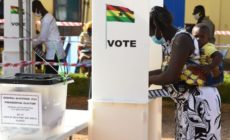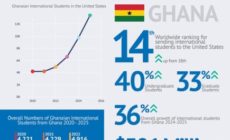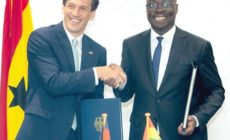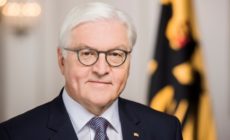Ghana buys 180mw from Ivory Coast to tackle dumsor
- Posted on
- Comment
 Despite sinking millions of dollars into acquiring new generation capacity, especially expensive emergency power plants, to fix the power crisis which has hiked electricity tariffs, Ghana is still importing 180 megawatts of electricity from Ivory Coast to close deficits.
Despite sinking millions of dollars into acquiring new generation capacity, especially expensive emergency power plants, to fix the power crisis which has hiked electricity tariffs, Ghana is still importing 180 megawatts of electricity from Ivory Coast to close deficits.
Ghana currently has installed capacity exceeding 3,000 megawatts, but peak demand is a little over 2,100 megawatts.
Therefore, the deficit in demand, which has necessitated import from Ivory Coast, indicates that the urgent problems have to do with getting assured, regular and ample fuel to fire thermal plants, which in turn is very much dependent on paying outstanding bills to the power producers and suppliers.
Information gathered by The Finder revealed that import from Ivory Coast romped up to 180 megawatts last Sunday.
Out of this, 60 megawatts was dispatched to Togo and Benin.
Ghana and Ivory Coast have a power exchange arrangement. Ivory Coast comes to the aid of Ghana at certain times when power is needed and Ghana also goes to their aid when they need power.
What happens at the end of the day, or month, or year, is that there is reconciliation to determine who gave more and who gave less so that the countries can balance through a clearing house.
However, energy experts are questioning why Ghana continues to import power from Ivory Coast when installed capacity far outstrips peak demand.
Only 1 unit of Bui Dam running
According to information, Bui Dam is operating only on one unit because of low water level, measuring 168.32m as of Sunday.
Asogli producing only 40 megawatts
The Sunon Asogli Power Plant is only generating 40 megawatts out of 200 megawatts due to the low level of lean gas from Nigeria.
As of Sunday, gas from the West African Gas Pipeline was 13.76 million standard cubic feet of gas.
Akosombo Dam running 4 turbines
Akosombo Dam is operating four turbines despite the water level measuring 236.46 feet.
110-megawatt TT1 down
Tema Thermal Power Plant (TT1), with 110-megawatt capacity, is down while one unit of Takoradi Thermal Power Plant is also out of operation.
Capacity charge
Under the system of contracting new generation from the Independent Power Producers (IPPs), the cost of power has two main components; namely, a Capacity charge and an Operational charge.
Capacity charge represents a cost that is paid simply to have the plant here in Ghana.
It has nothing to do with whether it is producing power or not. Therefore, Government of Ghana has to pay such producers huge sums of money if government is unable to provide fuel as agreed.
Therefore, any power generation capacity acquired beyond the peak load, plus a spinning reserve of about 25%, which is just sitting doing nothing, is adding to the costs that go into the calculation of the realistic or economic tariffs.
ECG’s Power Purchase Agreements (PPAs) are priced with IPPs in dollar and cents, including Asogli.
However, ECG bills consumers and collects tariffs in the constantly wobbling Ghanaian cedi.
VRA also signs all its contracts, PPAs, fuel purchases from WAGP and Ghana Gas, and power purchases from Ivory in dollars and cents too.
ECG is obliged to first pay its IPP partners in dollars and cents at current forex rate before it can share the rest of it with VRA and Gridco.
The reality is that ECG needs to convert the cedis into dollars to pay the IPPs.
Even before then, they must pay their staff, and if there is anything left, before they can pay VRA, GRIDCO and anybody else in the supply chain.
By Elvis DARKO, Accra










 (Selorm) |
(Selorm) |  (Nana Kwesi)
(Nana Kwesi)